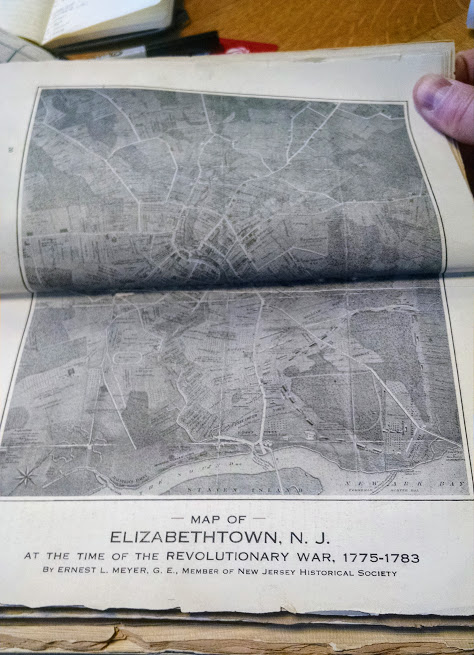New Jersey Colonial History

Revolutionary Heritage: Elizabeth, New Jersey
When looking to imbibe our nation’s colonial and revolutionary heritage, most people might travel to Philadelphia, Boston, or Williamsburg, Virginia. Few people–very, very few people–would consider an afternoon journey to Elizabeth, New Jersey, an industrial city on the Newark Bay just outside of New York City.
Breaking News: History Found in New Jersey!
This Easter, my wife and I shared dinner with my in-laws at the Stage House Tavern in Scotch Plains, New Jersey. Incidentally, the meal and ambiance were excellent. If you’re a resident of the area or simply passing through, enjoy a few drinks or a meal at the Tavern. I doubt that you’ll leave disappointed.…
Washington Irving, Gibbet Island, and Jersey City
My post from last summer examined the connection between Washington Irving, America’s first international author and a connoisseur of Dutch culture, and the village of Communipaw—a part of contemporary Jersey City. This post has proven to be my most read piece with visitors from around the globe, illustrating the power and the possibility of culture—whether…
The Peach Tree War
My blogging has been sporadic during the past several months, and my attention has wandered far afield from my original subject of Jersey City. This post marks an intellectual return to the forgotten Dutch empire on the banks of the Hudson River. Following the Pavonia Massacre, hostilities between Dutch colonists and the surrounding Native American…
The Pavonia Massacre
A little-known but bloody episode on the New Jersey side of the Hudson River enraged and united the rival Native American tribes throughout New Netherland against the Dutch colonists and their corporate governorship. This war nearly ended the Dutch East India Company’s colonial experiment in North America. Today, historians call this event Kieft’s War.
When Jersey City was (Briefly) Dutch
The next few several posts (final and exact number to be determined) initiate the first historical project here at Another Town on the Hudson. Over the next several weeks, Another Town on the Hudson will explore a fascinating but largely forgotten chapter of early American history: New Netherland. Specifically, the forthcoming writings will linger on…